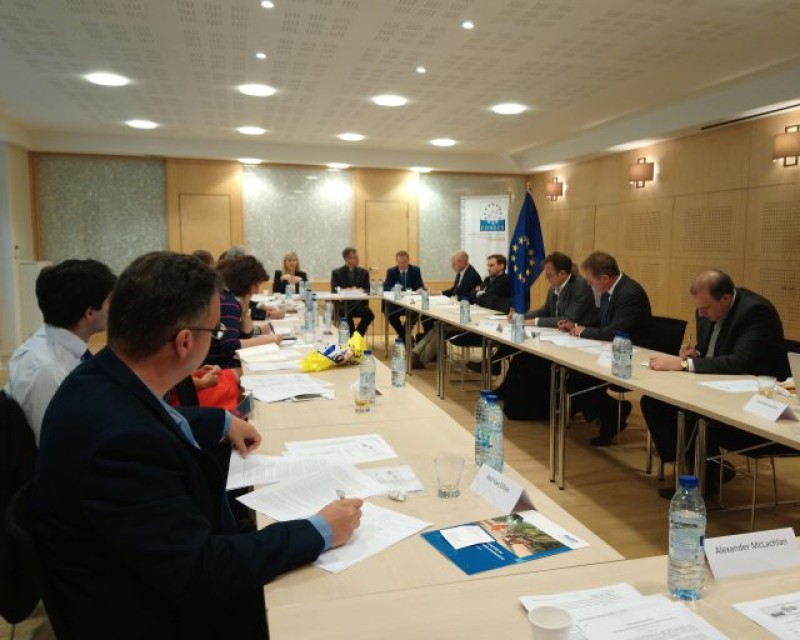Press Release No: 17/31
18 July 2017
Brussels
The following is the outcome of a dialoge seminar between faith-based actors and European policy makers.
It was jointly organised by the Conference of European Churches, the Commission of the Bishops' Conferences of the European Community, the Quaker Council for European Affairs and the Bahai International Community Brussels Office.
Resilience in practice: faith-based actors can support resilience in diverse communities
On July 12, 2017 representatives from a range of religious organisations met with senior European policy makers to explore different dimensions of resilience and how faith-based actors can contribute to fostering resilience.
The key take away from the dialogue was that resilience is multi-dimensional and faith communities are well positioned to take the lead with profound knowledge of communities as well as local institutions.
Several participants emphasised the need for a multi-level approach to resilience. It should entail more than building a competent bureaucratic state but involve actors on different levels such as religious organisations, faith communities and their networks as well as other parts of civil society.
Katerina Pekridou, Dialogue Secretary at the Conference of European Churches, urged government officials to explore further a resilient-based approach to peace building. “Peace building is an area which in particular would benefit from a resilient based approach but we need to look at what this means in practice for the churches”, she said.
Other voices around the table also stressed that religious organisations have the most extensive networks across the world. This reach could be used for early warning as well as early action in preventing conflicts.
As one government official recognised, faith remains a strong driver of behaviour and source of motivation in many corners of the world and development actors could better tap into faith as a positive source of motivation in communities.
One participant remarked that in the developing world, where the need is the greatest, more than half of the population are youth. This should be better considered by the European institutions when implementing the new resilience framework.
Finally, although greatly improved in recent years, religious organisations at the meeting urged EU institutions to do more to engage with faith-based actors.
This meeting was a follow up of an informal meeting of faith-based organisations on May 18, 2017 where representatives shared best practices and experiences from their resilience related work.
To keep the discussions open and free the event was held under the Chatham house rules which allow participants to be quoted but their identity or affiliation cannot be revealed.
For more information or an interview, please contact:
Henrik Hansson
Communication Coordinator
Conference of European Churches
Rue Joseph II, 174 B-1000 Brussels
Tel. +32 2 234 68 42
Fax +32 2 231 14 13
E-mail: hhansson@cec-kek.be
Website: www.ceceurope.org
Facebook: www.facebook.com/ceceurope
Twitter: @ceceurope
The Conference of European Churches (CEC) is a fellowship of 115 Orthodox, Protestant, Anglican and Old Catholic Churches from across Europe, plus more than 40 National Council of Churches and Organisations in Partnership. CEC was founded in 1959. It has offices in Brussels and Strasbourg.
